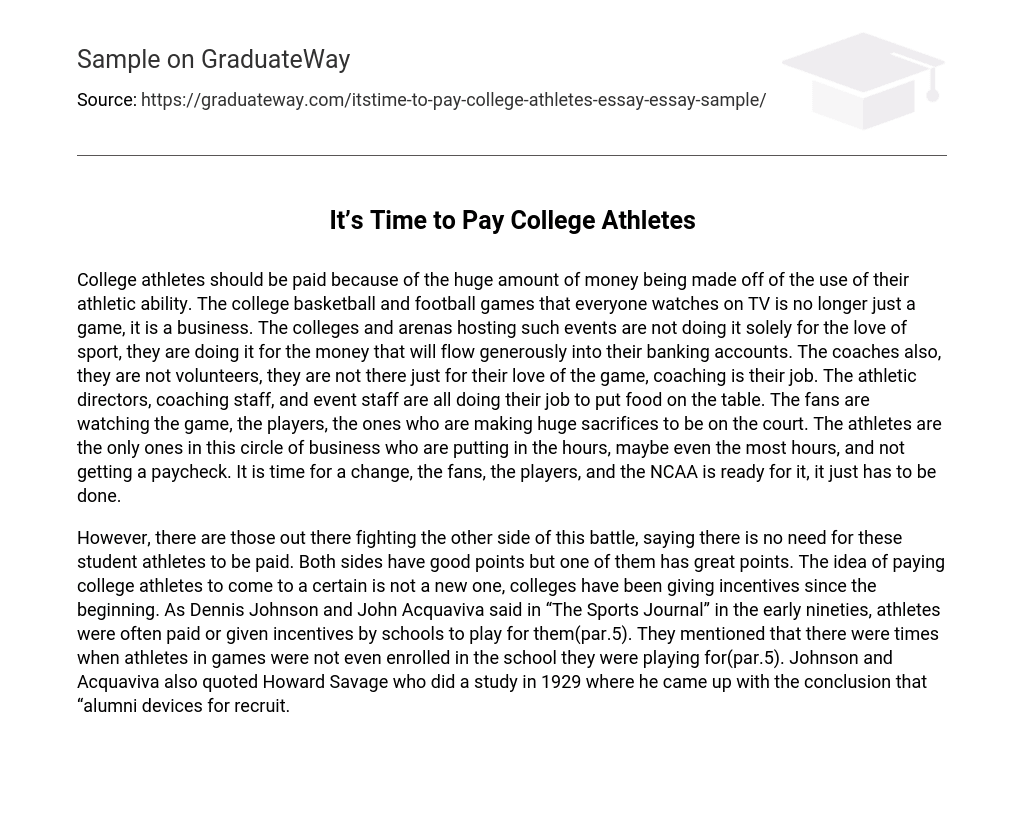College athletes deserve to be compensated for the considerable revenue generated by their athletic talents. The college basketball and football games that captivate viewers are not merely recreational contests; they have evolved into lucrative enterprises. The colleges and arenas hosting these events are motivated primarily by financial gain rather than a passion for sport. Similarly, coaches should not be considered as volunteers, but rather individuals who are employed to do their job of coaching. Moreover, athletic directors, coaching staff, and event personnel are all working diligently to provide for their livelihoods. It is pivotal to acknowledge that while fans enjoy watching the game, it is the players who make immense sacrifices to compete on the court. Astonishingly, in this realm of business, athletes are the sole participants dedicating countless hours without receiving any monetary compensation. The time has come for change, supported not only by fans and players but also by the NCAA. Implementation of this reform is all that is left.
However, there are people opposing the idea that student athletes should be paid. Both sides have valid arguments, but one side presents particularly strong points. The concept of compensating college athletes for attending a specific institution is not a new one; colleges have been giving incentives since the beginning. In the early nineties, Dennis Johnson and John Acquaviva stated in “The Sports Journal” that athletes were frequently provided with payments or incentives by schools to play for them (par.5). They also mentioned instances where athletes participating in games were not even enrolled in the school they represented (par.5). Johnson and Acquaviva further cited a study conducted by Howard Savage in 1929, which concluded that “alumni devices for recruiting” were prevalent.





